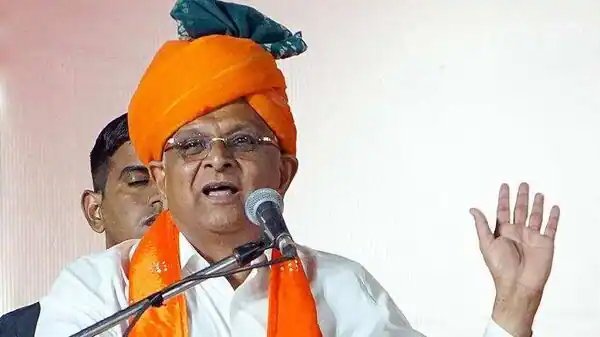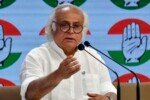GANDHINAGAR, Feb 4: The Opposition in Gujarat on Tuesday said the BJP government’s decision to form a committee on the Uniform Civil Code (UCC) issue was an attempt to divert the people’s attention, and claimed the rights of the tribal communities will be affected if the Code was implemented.
The five-member panel, headed by retired Supreme Court judge Ranjana Desai, has been tasked with assessing the need for the UCC in the state and drafting the bill, Chief Minister Bhupendra Patel said earlier in the day.
Leader of Opposition in the state assembly Amit Chavda said the Bharatiya Janata Party was more interested in the “politics of minority and majority”.
“In Gujarat, tribals make up 14 per cent population. The UCC will affect the culture, customs, religious rites and marriage system of the tribal communities. Similarly, the Jain community of Gujarat, and the Devipujaks will also be affected,” the Congress leader said.
Even the Constitution has given freedom to certain communities to pursue their customs and culture, Chavda added.
“Implementation of the UCC lies in the jurisdiction of the central government, and not the state. But since there is internal fighting in the BJP all over Gujarat, and the government has failed in every way, this announcement is an attempt to divert the people’s attention ahead of the local body elections,” he claimed.
Aam Aadmi Party state head Isudan Gadhvi said the BJP raises the UCC issue whenever there is an election.
“Even today, 80 percent of domestic disputes in Maldhari community are resolved by its own leaders. There is polygamy in tribal society and all these practices will end if the UCC is implemented. Therefore, we believe the UCC is going to be a hindrance for Christians, Sikhs, Muslims and others,” he said.
If the UCC is implemented in Gujarat, the BJP will not be able to win a single tribal seat, he claimed.
“I would also like to tell the BJP that it is not right to look at everything from the perspective of Hindu-Muslim or vote-bank politics,” Gadhvi said.
The issue was raked up only because local bodies polls are around the corner, and it might be raised again before the assembly polls, he claimed.
“The BJP has done nothing about inflation or unemployment, it does not create jobs,” he said.
All India Majlis-e-Ittehadul Muslimeen (AIMIM) leader Danish Siddique claimed that the UCC was being used to target the Muslim community, and he does not have much hope from the committee formed by the government to consider divergent views without a bias.
If tribals are kept outside the proposed law, it would not be a uniform code, he said.
“We will put our side before the panel. When BJP targets Muslims over polygamy, it should know this is prevalent in other communities too. When one community is allowed (to have polygamy) and not others, then it is not UCC,” Siddique said.
Social worker Gita Shroff, one of the committee members, said she “firmly” believed that a common law will have many benefits. “In the past 30 years, I have seen difficulties faced by women and children in their fight for justice. UCC will help resolve this,” she said.
Another committee member Dakshesh Thakar, former vice chancellor of Veer Narmad South Gujarat University, said women are especially affected due to personal laws, and the Supreme Court had directed in the Shah Bano judgement that contradictions in these laws be removed and a uniform law be framed.
“Even the Constituent Assembly framed guiding principles (of state policy) which have a provision for UCC. We know that Uttarakhand has implemented the UCC,” he said.
Minister of State for Home Harsh Sanghavi said the UCC, if implemented, will protect the rights of the tribals.
“The UCC implemented by Uttarakhand presented a model before the country because it protects the customs and traditions of tribals. (Union) Home Minister Amit Shah has also clarified in Jharkhand that UCC will protect the traditions followed by tribals,” Sanghavi said. (PTI)












